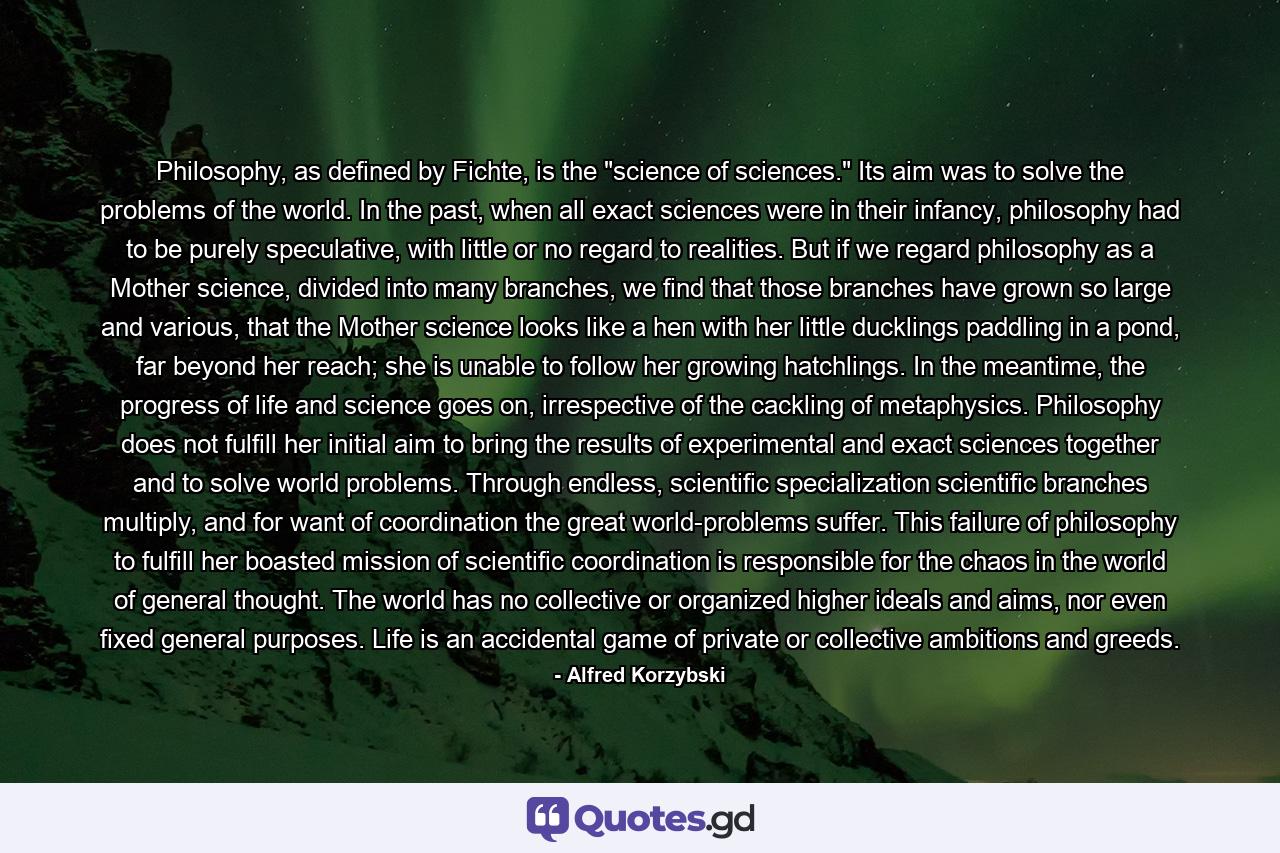Philosophy, as defined by Fichte, is the “science of sciences.” Its aim was to solve the problems of the world. In the past, when all exact sciences were in their infancy, philosophy had to be purely speculative, with little or no regard to realities. But if we regard philosophy as a Mother science, divided into many branches, we find that those branches have grown so large and various, that the Mother science looks like a hen with her little ducklings paddling in a pond, far beyond her reach; she is unable to follow her growing hatchlings. In the meantime, the progress of life and science goes on, irrespective of the cackling of metaphysics. Philosophy does not fulfill her initial aim to bring the results of experimental and exact sciences together and to solve world problems. Through endless, scientific specialization scientific branches multiply, and for want of coordination the great world-problems suffer. This failure of philosophy to fulfill her boasted mission of scientific coordination is responsible for the chaos in the world of general thought. The world has no collective or organized higher ideals and aims, nor even fixed general purposes. Life is an accidental game of private or collective ambitions and greeds.
